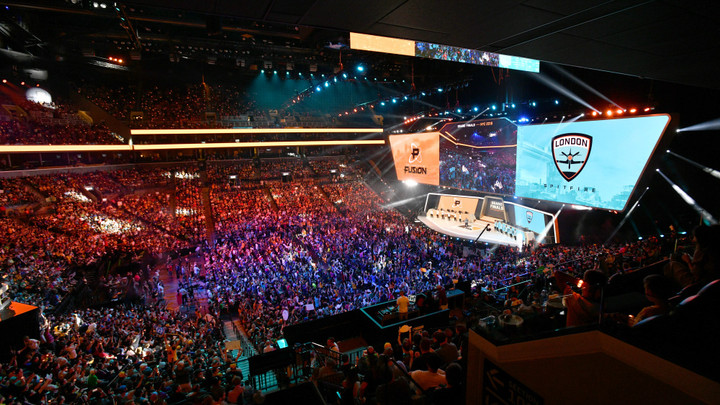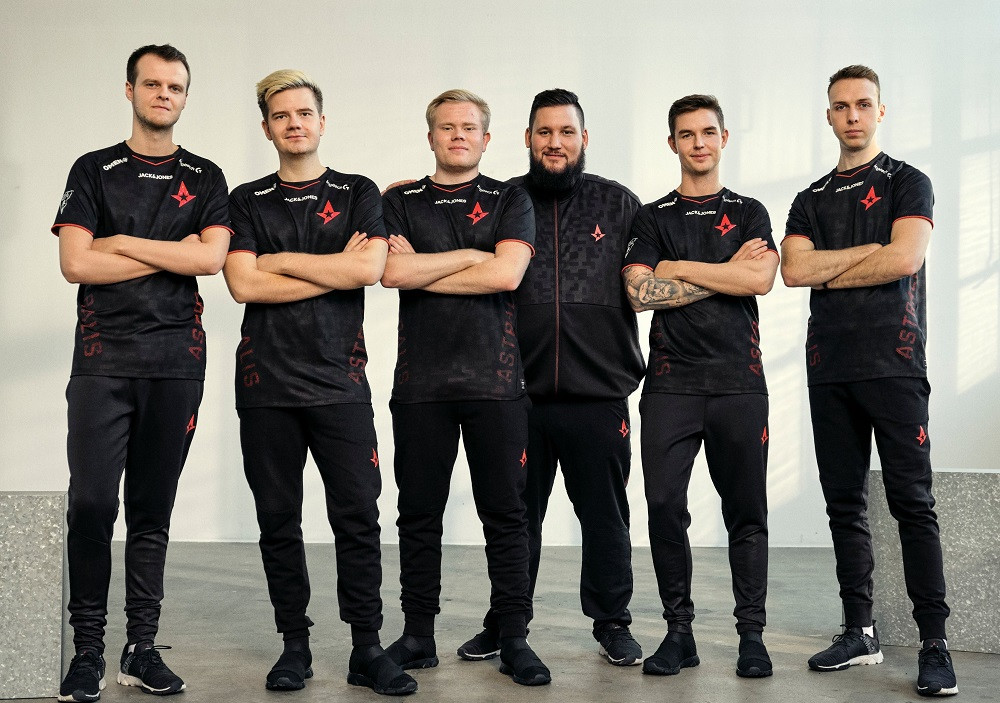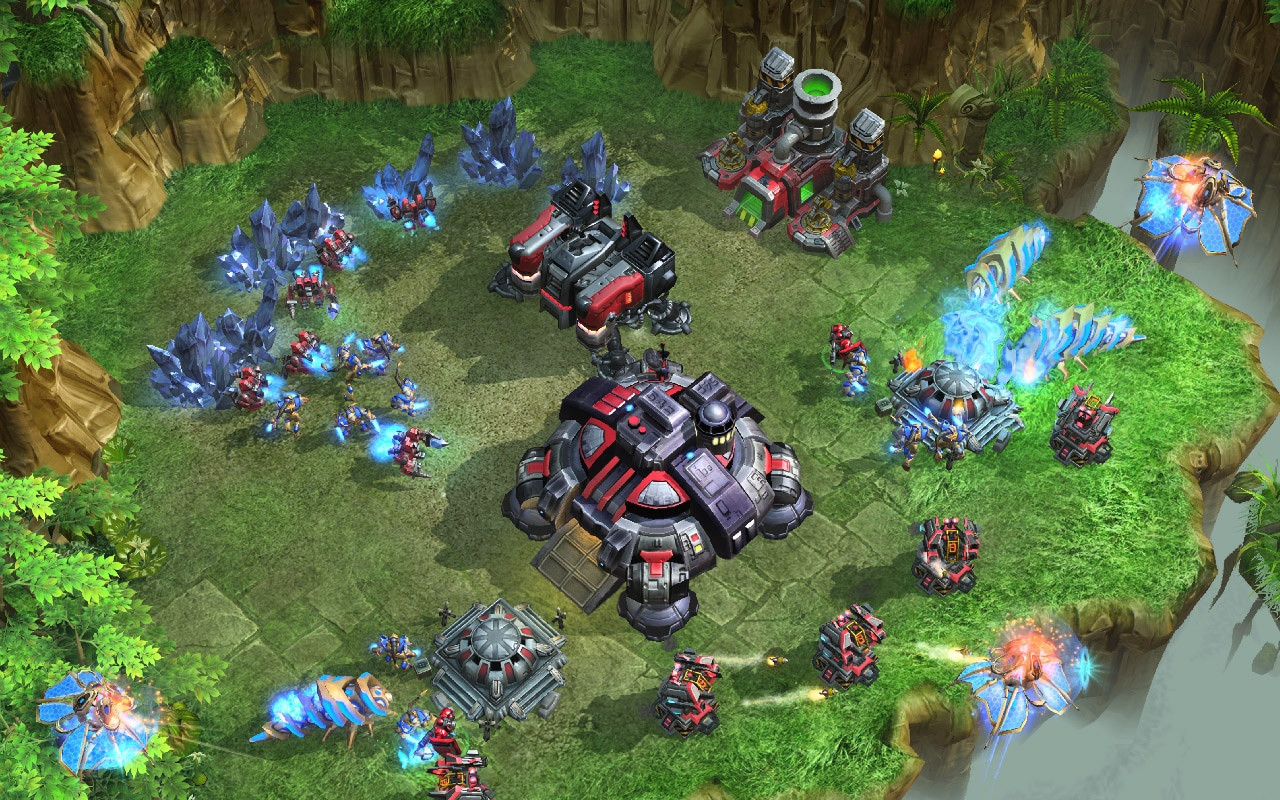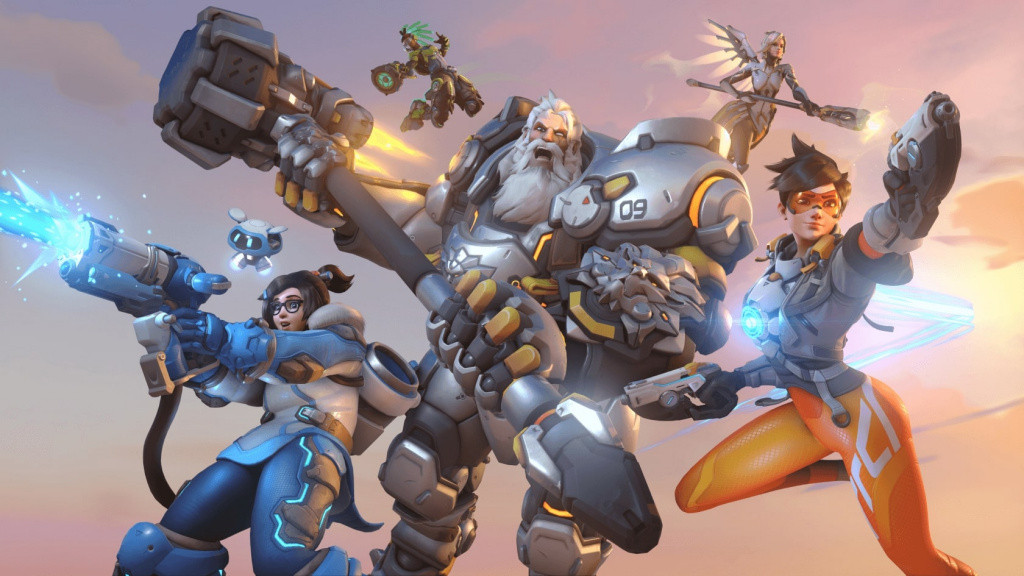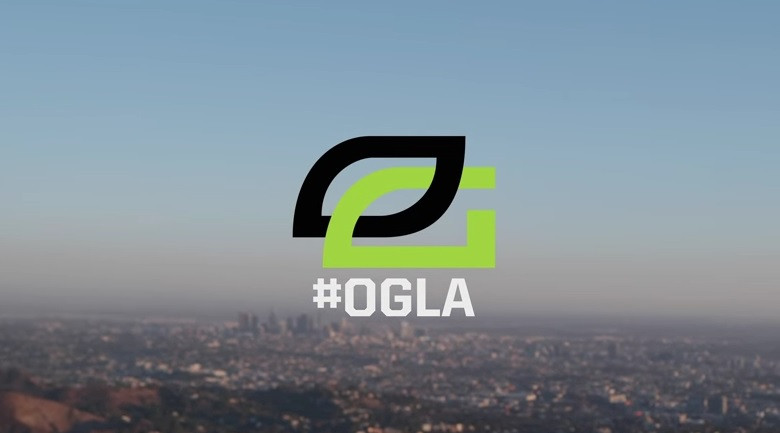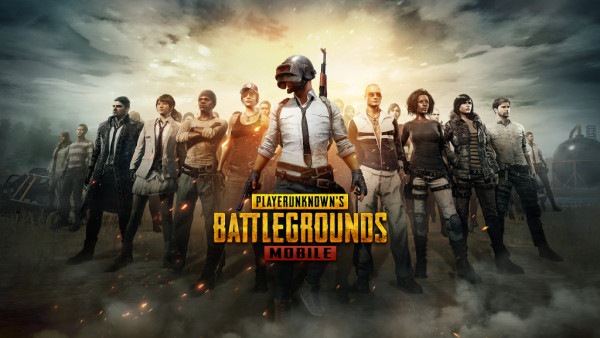How do games become esports?
In very basic terms, any video game title that is played competitively for money is an esport.
It doesn't matter if it is well-managed or entertaining to watch or has small prize pools, the definition is very simple.
The real question is less what is an esport and more what makes an esport successful and recognised.
Qualities such as having an engaged community, an active player base, LAN tournaments, storylines and recognisable talent within the competitive scene is also important for the future of any title.
These can also lead to the downfall of a game such as perceived catering to a 'casual' groups of players or the loss of these talents resulting in a drop in interest.
Pillars
The likes of Counter-Strike: Global Offensive, Dota 2, League of Legends and StarCraft II are established esports titles.
CS:GO started life as the original Counter-Strike, with a competitive scene emerging in the early 2000s and continuing to grow still two decades later. With the basic game concept and action that is easy to understand, the first-person shooter remains the dominant game of its genre.
Astralis was founded in 2016 and retains the same three-man core from that era. Following four Major wins and an unrivalled run of dominance in 2018 for the team, parent company Astralis Group was listed on Nasdaq First North Growth at the end of 2019.
Astralis Group owns a successful CS:GO team (above) as well as LoL team Origen in the LEC and Future FC in FIFA (Credit: Astralis)
MOBAs like Dota 2 and LoL contain far more depth and the impressive plays require more knowledge to understand. With over 100 playable characters in each title, knowing the intricacies of each one is a task in itself and recognising good or bad decisions by players is more difficult.
This has not stopped these titles from becoming extremely popular. Dota 2 boasts a record-breaking prize pool every year following crowdfunding via in-game items available for players to purchase while League of Legends sees regional leagues from North America to China culminating in a World Championship that sees huge viewer numbers even from those who do not follow the regular seasons.
The 2019 World Championship saw peak concurrent viewership hit 44m according to a LoL blog post and a $2,225,000 base prize pool with added in-client sale revenue in Riot Games' own crowdfunding efforts.
StarCraft II is a juggernaut in its own right despite being a niche real-time strategy game. The microdecisions required to have the edge over opponents in top-level competition is harder to follow than any MOBA.
StarCraft II is widely considered to be one of the original esports titles and continues to be respected to this day (Credit: Blizzard)
All of these games have an established history, storylines, legendary players or teams and are ultimately engaging to watch. There is something for the casual fans and the hardcore followers of the titles and each scene grew organically rather than forced into creation as some more recent titles have attempted.
Newcomers
Overwatch is endeavouring to become a pillar of esports through Blizzard's effort to establish the Overwatch League.
With initial franchise spots sold for $20m and Twitch paying $90m for the broadcasting rights, fans were hoping to witness the rise of a juggernaut in the esports scene.
Instead Blizzard and the OWL have been criticised on multiple fronts from budget merchandise, inflated viewership numbers and the handling of the 2-2-2 role lock to shut down the prominent GOATs meta.
Last year, Nate Nanzer and Kim Phan were some of the big names to leave Blizzard and recent departures in OWL specifically have raised eyebrows and led to many questioning the future for the League.
Fans of Overwatch are certainly dedicated and many of these fans are also fans of competitive play, making them very vocal social media cheerleaders when they are invested into a team. While this is a positive and creates a sense of sports fandom, this is very much a game fandom first and foremost.
There are many who idolise the characters and enjoy the community that has spawned around the title that refuse to listen to criticism about their game or esports scene (unless that criticism is asking why specific representations are not yet included in a game that was previously praised by the same group for its diversity or that there is a black character is portrayed a villain in the game).
Overwatch 2 is coming 'soon' as the Overwatch League sees homestand games added to the competitive circuit (Credit: Blizzard)
Call of Duty does not have the biggest esports community despite its position as one of the best-selling franchises of all-time.
The scene has its fair share of personalities and organisations such as OpTic Gaming and FaZe Clan have been able to establish themselves as household names in gaming thanks to CoD.
With the upcoming Call of Duty League introducing franchised teams for locations across the globe, a $25m buy-in price ...
OpTic Gaming will participate in CDL but with Immortals Gaming Club at the helm following the buyout of Infinite Esports & Entertainment.
Many OpTic fans have elected to instead follow the Chicago Huntsmen due to former CEO Hector "H3CZ" Rodriguez joining NRG Esports and becoming CEO of the new franchise.
OpTic Gaming Los Angeles sees the iconic brand competing under new leadership (Credit: OpTic Gaming)
There are other titles such as Rainbow Six Siege and Rocket League that are emerging as strong esports titles with their respective developers adding new content to help support that side of their game without damaging the experience for ordinary players.
Post-launch updates to Rainbow Six helped turn the game around and allow it to become a strong contender in the multiplayer market even with the emergence of other titles since its initial 2014 release. Ubisoft also consulted with tournament organiser ESL while developing the game in order to set it on the right path as an esport.
Rocket League saw a meteoric rise following the game being given to PlayStation Plus subscribers for free on launch and the game being a mix of football, racing and aerial rocket boosting allowed for anyone to play with a high skill ceiling for the very best players.
Issues
Some genres do not lend themselves to esports as easily as others. Battle royales have infamously struggled to carve their place into the esports mountain.
H1Z1 saw its Pro League collapse as payments were owed and a controversial Combat Update kill the player base.
PUBG has seen a mass exodus of organisations over the last year, with the Mobile version of the game rising as a leader in a growing mobile esports market.
PUBG Mobile has seen significant growth and numerous tournaments in Asia (Credit: PUBG Corp.)
Fortnite, like CoD in its popularity, is considered hard to follow and too luck-based to reliably see the best players out of 100 in the server at a time win events thanks to their skill.
There are some titles that struggle to get off the ground as a game which see a knock-on effect on their competitive scenes, however a failed esports title is still an esport.
The likes of Valve card game Artifact, which entered freefall and eventually saw its Twitch category used to stream pirated movies, adult material and recorded footage of a terrorist attack, still had events taking place during its decline.
One often-forgotten title is Battleborn. Developed by Gearbox Software, the creators of Borderlands, Battleborn had all of the hallmarks of a potential esports title, but the subsequent launch of Overwatch saw the game struggle to gain a foothold and it fell into obscurity.
After going free-to-play in 2017, a year-long phased shutdown of the game's servers commenced with the game being removed from sale in November 2019 and planned closure of servers by January 2021.
Some games do nothing wrong but simply sit as side projects for their developers. Blizzard shut down Heroes of the Storm's Heroes Global Championship and Heroes of the Dorm ahead of 2019 as the decision to "shift some developers from Heroes of the Storm to other teams" was made and saw it as "the right decision versus moving forward in a way that would not meet the standards that players and fans have come to expect."
A message from J. Allen Brack and Ray Gresko about the future of Heroes of the Storm and the HGC > https://t.co/BwRbg9Cixppic.twitter.com/XHh8Mrc75U
— Heroes of the Storm (@BlizzHeroes) December 13, 2018
This left many fans angry and those involved with the esports scene confused by the news as the announcement in mid-December left many unsure about what they would be doing for the upcoming year.
Connections
Esports is often represented by the big personalities seen on Twitch (and now other streaming platforms) such as Tyler "Ninja" Blevins and Michael "shroud" Grzesiek. While these are often former professional players, their position as 'esports figures' is often challenged.
The Esports Awards 2019 saw not only categories for Streamer of the Year but more obscure accolades such as Cosplayer of the Year. While cosplayers often dress up as characters from esports games, the question as to whether being associated with the game is enough to be given the esports label.
The same can be said for other forms of competitive gaming that is not strictly competition or done at LAN events. World of Warcraft raids or speedrunning hold some of the same qualities that explain what makes an esport but are often considered their own thing rather than fitting under the esports umbrella.
Fighting games often have a mixed relationship with the world of esports. While the FGC is a vast collective of multiple communities, the relationship between it as a whole and the wider world of esports has been turbulent. Even within its own factions, some disregard the Smash franchise as not 'fitting in' to the scene.
In recent years, there have also been controversies from numerous sexual assault scandals, FGC talent accused of conspiring to sabotage host James Banks and threats of violence directed towards Richard Lewis following his time hosting FGC shows for ELEAGUE.
Last event I tried to attend I had multiple people saying they would shoot or beat me up. I was advised by my security team not to attend due to the threats being credible. In the last 24 hours I've had about half a dozen similar threats.
— Richard Lewis (@RLewisReports) May 4, 2018
It ultimately boils down to whether people are invested and wish to follow the game in a competitive and professional setting. What might be fun played between a few friends and as the player doesn't always translate into a good esports experience.
With esports billed as a potential billion-dollar industry and organisations running in the red in almost all cases, the financial expectations for those investing millions are often unrealistic and there is little understanding of how titles need time to grow and cannot be forced into the space and accepted instantly. The best esports in the business are those that have been allowed to go through the process organically.

 No ads, our video library,
No ads, our video library,
